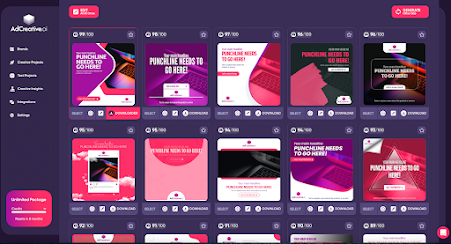Revolutionize Your Social Media Game with AI Social Media Creators - Save Time and Money While Creating Stunning Visuals!
Social media has revolutionized the way people communicate, connect and express themselves. Today, billions of people are active on various social media platforms, sharing their thoughts, experiences, and stories with the world. As social media has grown in popularity, the need for creative content has also increased. This is where AI social media creators come into play. These AI-powered tools can create stunning visuals, logos, and images for social media in a matter of minutes. In this article, we will explore the world of AI social media creators and how they are changing the game for content creation.
What is an AI Social Media Creator?
An AI social media creator is a software tool that uses artificial intelligence and machine learning algorithms to generate images, graphics, logos, and other visual content for social media platforms. These tools can analyze and understand user requirements, and then use this information to generate creative and visually appealing content.
AI social media creators are designed to be user-friendly and intuitive, even for those with no graphic design experience. They offer a range of templates, styles, and colors, which users can customize to suit their branding and messaging needs. These tools can be used to create social media posts, banners, logos, and even videos.
The Role of AI in Social Media Creation
AI has significantly impacted the world of social media creation. In the past, graphic designers and creative professionals were required to create content manually, using specialized software and tools. This process was time-consuming, expensive, and often required a lot of trial and error to get the desired results.
However, with the advent of AI social media creators, this process has become much simpler and faster. AI algorithms are designed to learn and adapt to user needs, allowing them to create stunning visual content in just a few clicks. This has enabled individuals and small businesses to create professional-grade social media content, without the need for specialized skills or expensive software.

Comments
Post a Comment